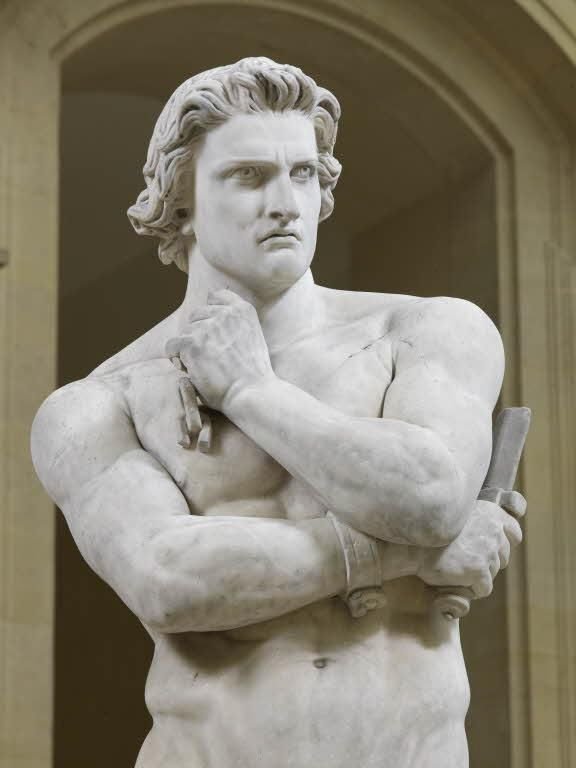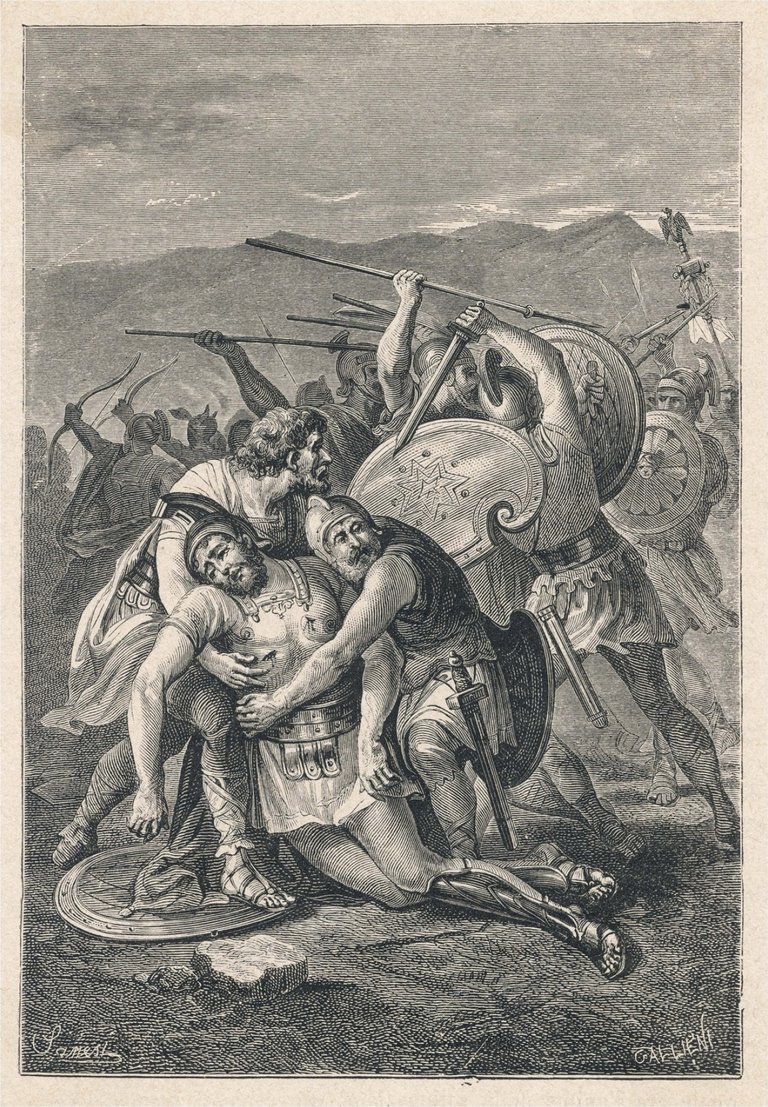After the Punic Wars, Rome saw an enormous influx of slaves brought into its empire, and the conditions were horrific. The master had complete control over their slaves - they could be killed, branded, and shackled. As the Senate took control of the slaves, they even began to put them to work in the salt mines which killed many people. Roman law had no protection of the slaves, only of their masters. Their treatment made them very prone to revolt.

Spartacus
Born a Thracian, he joined the Roman military as an auxiliary soldier, meaning he was trained in combat. At some point he deserted and the punishment for this was either death or slavery. In his case, he was sent to Capua to a gladiatorial school to become a gladiatorial slave. In 73 B.C. he decided he was going to escape, including 70 to 80 other slaves who used only kitchen tools to fight.
Once they were out, they began crisscrossing through Italy adding slaves he encountered into his army. In total he ended up with 120,000 men and, despite his condemnation of it, they raped, pillaged, and plundered. Finally, the Romans began to send out their legions to fight this slave army.
Crassus & Pompey
Crassus was the wealthiest man in Rome and was granted 8 legions to defeat Spartacus. This was 40-50,000 men in his army who all had actual, well-maintained weapons. Spartacus' army on the other hand had only whatever they could find, plus they were only slaves - not all were trained to fight a battle. With this in mind, Crassus should have been able to fight Spartacus, but they weren't.
He was not a great leader and his men didn't listen to him. For instance, if he tells them not to attack, they attack. In the end, they are routed. It became so desperate that the Senate sent word to another commander, Pompey, to bring his legions from Spain to finally rid of Spartacus. By the time he gets there however, Spartacus' army is almost entirely destroyed, Pompey just sweeps up and kills off stragglers. Despite Crassus' efforts, Pompey takes all the credit and glory for their victory. This would be the subject of an endless feud between the two.

The thought that slaves could fight Roman legions horrified the Romans. By the end of this, there were about 6,000 slaves captured alive. Crucifixes were erected all along the Appian Way with a slave on each one. What was unusual about this was that they left the bodies up, since they believed they would serve as a reminder to others. The Romans were very superstitious and strict about burial procedures, therefore this was quite shocking. New rules and regulations were put on slaves after this, like limiting the number of slaves in a gladiatorial competition. It only got worse for them as the Roman mentality that slaves had to be kept down hardened.
I've read a couple of these historical posts of yours and have been meaning to comment. I think this is one of the more unique and engaging feeds on steemit. I guess I conider myself a bit of a Grecco Roman geek myself. I took three years of Latin and went to some classics conferences as a high schooler. Yeah, I'm kind of goofy in that way. I love history of all sorts, with a particular interest in late Roman and early English periods. My wife is obssessed with Tudor and Stewart era England. Maybe I should do some posts on that! Anyway, thanks for the blog.
Thank you so much for your comment! This is truly encouraging and I'm glad you enjoyed it!
What awful times to live in...
Indeed they were.